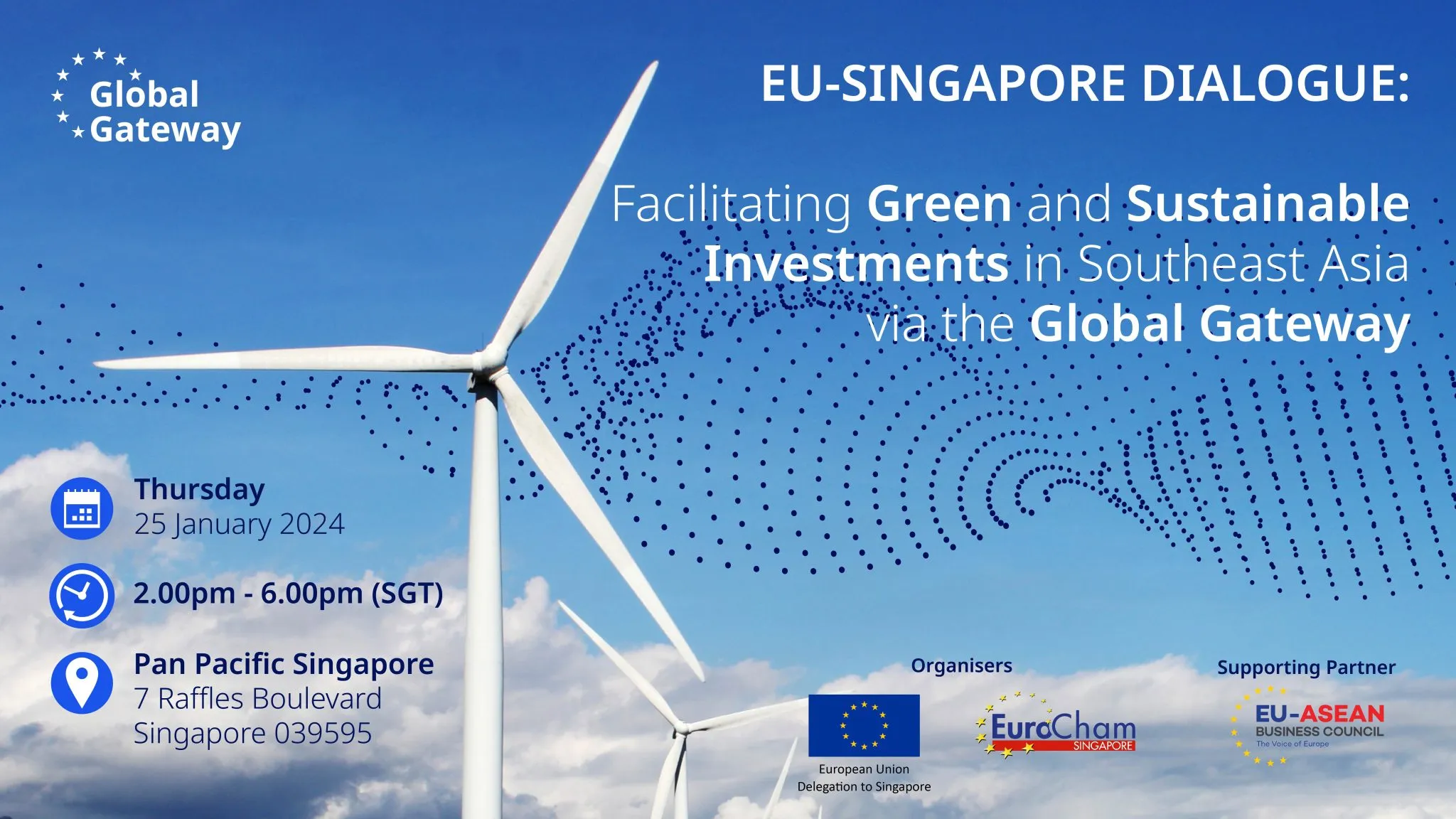
- This event has passed.
EU-Singapore Dialogue: Facilitating Green & Sustainable Investments in Southeast Asia via the Global Gateway

As countries in Southeast Asia continue to grow, it is estimated that large investments of approximately US$210 billion a year through to 2030 will be needed to build sustainable infrastructure. Infrastructure investments in ASEAN are currently driven by governments, and there is a need for greater private sector involvement and multilateral institutions to help bridge the infrastructure development gap. The challenges ahead to address climate change will require massive investments into clean and renewable energy, climate resilient and sustainable cities, and make a compelling case for a regional, integrated approach in sustainable investment. To ensure long-term sustainable impact, there must be a common understanding of what defines sustainability and the relevant environmental and social factors to consider.
In this context, the EU launched its Global Gateway initiative in 2021, a contribution to narrowing the global investment gap in infrastructure worldwide. It aims to mobilise up to €300 billion of investment funding from the EU and its member states, and focuses on the digital sector, healthcare, transport, climate and energy, and education and research. The Global Gateway’s priorities in ASEAN are the green transition and sustainable connectivity, with the EU aiming to mobilise €10 billion in investments specifically for these purposes.
The European Fund for Sustainable Development Plus (EFSD+) is the main financial tool to mobilise investments under the Global Gateway, and ensures worldwide coverage for blending, guarantees and other financial operations. It also raises financial resources for sustainable development from the private sector for inclusive economic development.
As a highly-developed city-state, Singapore has experience in funding infrastructure projects through private-public partnerships, and as such is well-positioned as a hub for infrastructure financing. It has developed a robust infrastructure ecosystem, bringing together developers, master planners, financiers, professional services and other supporting services. Many Singapore companies (both private and government-linked) have world-renowned expertise in areas such as project structuring, management, financing and investment, and have a good understanding of regional markets, and thus are well-placed to work with partners like the EU to serve Asia’s infrastructure needs and unlock the region’s infrastructure potential. The government has also set up Infrastructure Asia (InfraAsia), to serve as a facilitation office in supporting Asia’s social and economic growth through infrastructure development.
Beyond infrastructure, there are several areas where Singapore and Team Europe could cooperate under the Global Gateway to engage with Southeast Asia, for example, to develop sustainable and liveable cities, provide sustainable finance and promote sustainability standards, invest in climate mitigation and adaptation and other green investments, and to promote connectivity within the region.
This EU-Singapore Dialogue intends to present the Global Gateway approach and priorities under the Southeast Asia context, provide the case for sustainable and responsible investments, and explore the opportunities available for the private and institutional actors.
